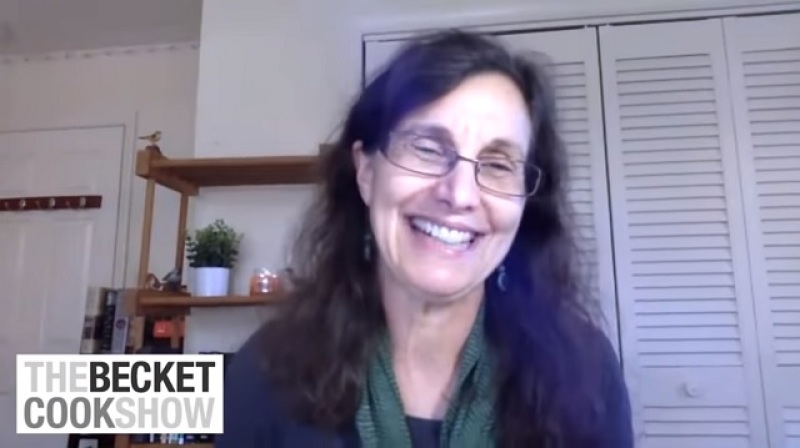
A former lesbian feminist sheds light on her journey into Christianity and how it impacted her identity and life to become a true Christ-follower.
Rosaria Butterfield is a former professor of women's studies at Syracuse University and the author of "The Secret Thoughts of an Unlikely Convert: An English Professor's Journey into Christian Faith." In a recent appearance in the The Becket Cook Show, Butterfield shared details about her personal journey from being a lesbian feminist to becoming a Christ-follower.
According to the biography on Butterfield's website, the author and former tenured professor of English and women's studies converted to Christianity in 1999, in a journey she describes as a "train wreck." Today, the author is wife to Kent Butterfield, a Reformed Presbyterian pastor in North Carolina, and a homeschool mother. She was raised in a liberal Catholic family and up until her late 20's, Butterfield was so "allured by feminist philosophy and LGBT advocacy" that she decided to identify as a lesbian.
Butterfield, who has a PhD from Ohio State University, met Ken Smith in 1997 while she was researching the Religious Right. At the time, she was unaware how big of an impact Smith would make on her life.
CBN News reported that Butterfield recounted during her interview with Cook, "I talk about what it was like to meet a pastor, who was my neighbor when I was a lesbian, feminist, activist, professor. I met Ken Smith, the pastor who the Lord used in my conversion. I thought this man is really smart."
Butterfield added, "[Smith] and his wife Floy welcomed me into their world and they came into my world and they didn't act as though I was polluting them. Early on in our friendship, Ken said to me 'there's a difference between acceptance and approval and if you can live with that difference, I can live with that difference.'"
Butterfield recounted how she began reading the Bible and routinely meeting with Pastor Ken and Floy, which sparked discussions on various issues from a Christian perspective. The former lesbian professor recalled how she met the entire church community and how the pastor's house "functioned," allowing her to experience firsthand what a Christian community was like.
"We would talk about hard and heavy things. We would read the Bible, we would pray, we would sing songs," Butterfield shared. The former lesbian professor admitted that she noticed "an aesthetic, palpable difference" between her own house and her pastor's house.
Butterfield described her house as one "filled with anxiety and constant frenetic, political activism," which was a stark contrast to Smith's house which was an environment where they could talk about "hard things," followed by a Bible reading, after which they would pray and "leave it at the cross."
"Then they would go on and laugh, feast, and have fun. I was intrigued by that," Butterfield admitted. "I came to the Bible with a long list of things I was mad about that I needed to work through."
The former lesbian professor shared that she read the Bible seven times in just two years because she wanted to understand and believe "this man-God" the way Christians believed in Him. Butterfield mused that when she became doubtful, asking "could I trust Him and is it true?," that was the real turning point for her. She decided to stop working with the Smiths, who in turn refused to "let go' of her.
Butterfield said she started reading the Bible for "personal questions of truth, life, and death," instead of just for research, which led her to get "convicted of a number of sins." She recounted how she just decided one day to go to church and realized how sermons helped "force" her to think about things she never thought of before.
"I discovered that sermons were this totally different thing and they would really force me to think about things that I hadn't thought about before," she said.
She concluded, "I realized that part of why I didn't understand how to be a godly woman was because I didn't understand how to be a woman, which was hilarious because I'm a professor of women's studies at the time. I was a mess, and I committed my life to Christ because I believed He was true and real and I had no idea what He was going to do with a mess like me."


















